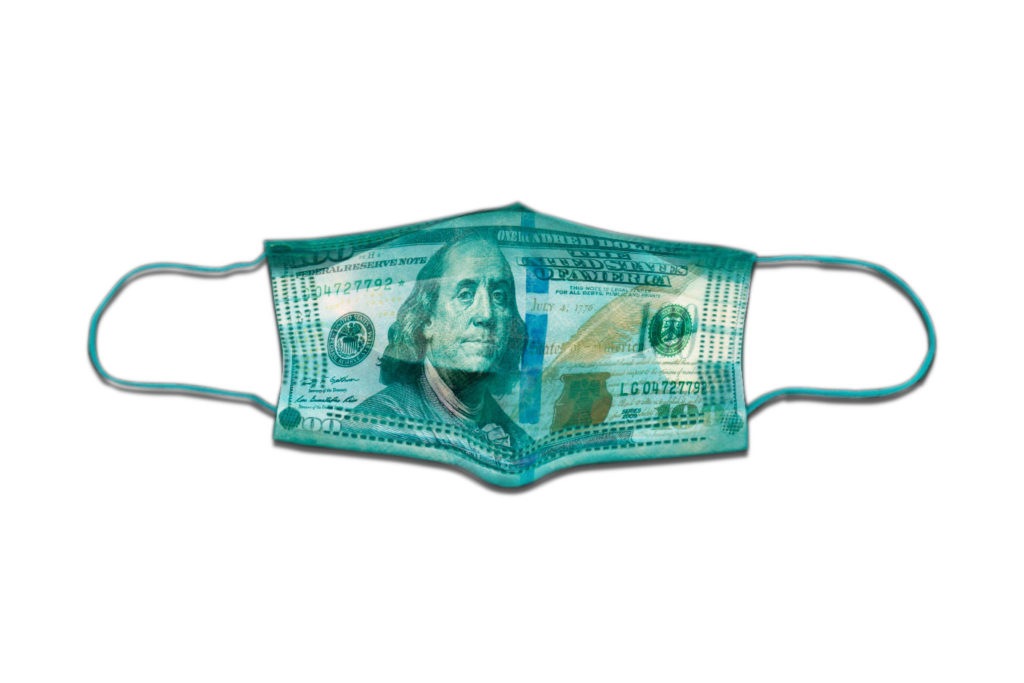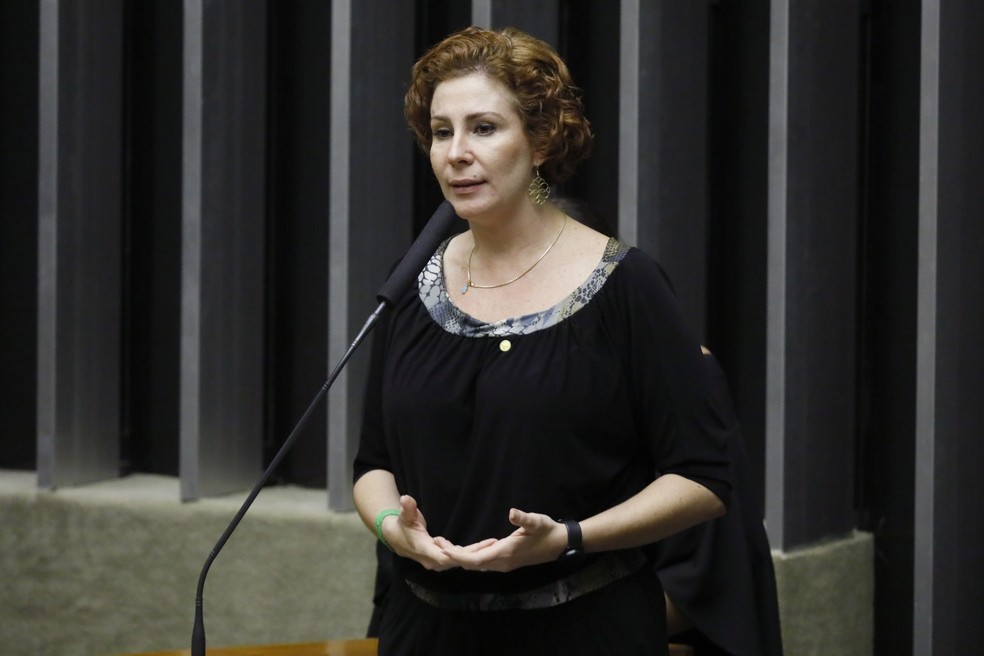RIO DE JANEIRO, BRAZIL – As the coronavirus epidemic spreads in Brazil, the country is also witnessing another escalation: anti-corruption operations involving public money in response to the disease.

Since the end of April, there have been at least 18 operations – one every three days on average. In the past week alone, five operations have been launched nationwide.
Police officers are also investigating irregularities in several city halls, including state capitals Fortaleza, Recife, Rio Branco, and São Luís.
In all, these operations have served 230 search and seizure warrants, and at least 32 people suspected of involvement have been detained.
The contracts and purchases investigated total approximately R$1.07 billion (US$214 million) – the amount that was effectively embezzled or over-invoiced; however, this amount is still under investigation by the authorities.
The information was collected by BBC News Brasil, based on data from the Comptroller General’s Office (CGU) and the Federal Prosecutor’s Office (MPF).
The CGU alone has been involved in 12 such operations – most of which in partnership with the MPF and the Federal Police.
The irregularities found also greatly vary
There are instances of overpricing on basic items, such as disposable masks – the case of Assepsia operations, in Rio Branco and Cobiça Fatal, in São Luís. But there are also investigations into millionaire contracts for purchasing ventilators and setting up field hospitals, similar to the investigations in Rio de Janeiro and the Federal District.
The first investigation of irregularities involving the response to the novel coronavirus occurred in the municipality of Aroeiras, part of the metropolitan region of Campina Grande, Paraíba on April 23rd. Named Alquimia, the operation served three search and seizure warrants in both Aroeiras and Patos, and found a loss of R$48,300 in printing booklets with health guidelines for the population.
In addition, the CGU was also involved in four operations that targeted people attempting to unduly benefit from the R$600 Emergency Aid, designed to tackle the economic impact of the pandemic.
According to CGU’s own officials, the avalanche of investigations was “predictable” and repeats the pattern of other times when large sums of federal funds were sent to states and municipalities. This was the case with the floods in the mountainous region of Rio in 2011, and the rupture of tailings dams in the cities of Mariana (2015) and Brumadinho (2019).
For attorney and ex-GCU judge Jorge Hage, the sheer number of investigations shows that the government “lost its grip” when it came to relaxing financial controls during the pandemic – as much as the situation demands agility in public procurement, major controls were eventually suppressed by provisional measures issued by the federal government, he says.
Politicization of investigations?
Investigations draw attention not only to the amount of money embezzled. Opponents of President Jair Bolsonaro say the investigations are being used to punish governors in opposition to the federal government.
Suspicions increased after Federal Deputy Carla Zambelli “anticipated” in interviews the operations against Rio’s governor Wilson Witzel and Pará’s governor Helder Barbalho. Zambelli’s first “prediction” came in late May, in an interview with Rádio Gaúcha – she mentioned the prospect of an investigation into Witzel, which materialized the following day. Zambelli is today one of Bolsonaro’s main allies in the National Congress.
The very term “Covidão” (Big Covid) emerged from her in the interview in late May. The neologism is inspired by corruption scandals that took place in the PT (Worker’s Party) governments, such as ‘Mensalão’ and ‘Petrolão’.
Last week, Zambelli also “anticipated” an operation against the governor of Pará, Helder Barbalho, in an interview with CNN Brasil. The Pará politician has been criticizing the President since the start of the pandemic.
On the very same Wednesday, June 11th, when the operation against the Pará governor was launched, the Legislative Assembly of the State of Rio de Janeiro decided – by 69 votes to zero – to hear a motion to impeach Wilson Witzel.
The procedure is motivated by alleged irregularities in the Rio de Janeiro government’s response to the coronavirus. Since early May, three operations have been conducted to investigate irregularities in the purchase of ventilators and the setting up of field hospitals in the state.
Zambelli’s “scoops” have been badly accepted in the political world. The president of the Chamber of Deputies, Rodrigo Maia, said that either the information had been leaked, or Zambelli owned a “crystal ball”.
“I think it’s natural that when an operation involves a governor, the President of the Republic will get information not of its substance, but of what may happen. Certainly among the Federal Police Director, the Minister, the President, someone leaked the information to the deputy,” said Maia. “Of course it’s not the right thing to do,” he added.
The governor of São Paulo, João Doria, said Carla Zambelli had acted as “mãe Dináh” (a Brazilian fortuneteller) and utilized the Federal Police as a “private police”. “Zambelli doesn’t hold a position or serve in the Federal Police, much less a spokesperson to anticipate police actions,” he said last Wednesday, June 10th, after the deputy had said that Doria, too, could be the target of operations.
Zambelli, today one of Bolsonaro’s main allies in Congress, denies having had early access to the investigations’ details.
“My source of information or ‘crystal ball’ is the same one mentioned by the Minister of Justice and Public Safety André Mendonça: the press. I reiterate my willingness to hand in my cell phone and release confidentiality because there is no leak,” said Zambelli on Twitter, last Wednesday, June 10th.

Number of investigations ‘is significant’
Roberto César de Oliveira Viégas, the current assistant secretary for fighting corruption at the CGU, says there is a significant increase in the number of corruption investigations in states and municipalities. And that this increase was predictable.
“We already knew this could happen, and we started to monitor these decentralizations (transfers of funds). What is the focus? To check if these companies being hired (…) if they really have technical and operational skills; if they really exist; if they are made up of strawmen; if they have already been involved in other operations; if they were recently founded. There’s a volume of data (to be checked),” he explains.
Viégas says that many of the irregularities charges come through the Fala.br platform, a government tool.
“When you have a large amount of resources being decentralized, at a time when there are fragilities (in controls), with direct contracting, amid a public disaster… We’ve already had experiences of this kind, like when we had those floods in the mountainous region of the State of Rio (in 2011), and also in Minas”, he says.
“When there are large funds being allocated (…), what we realize is that they won’t necessarily be used correctly,” he says. “We can state that there is a greater risk of incorrect use of these funds,” he says.
Government ‘botched things up’ in flexibilizing, says ex-CGU
An attorney and former CGU judge, Jorge Hage, says the government may have “botched things up” in the provisional measures that relaxed financial controls during the epidemic. He refers to Provisional Measures 926 (March), 928 (March), 951 (April), and 961 (May).
“We are experiencing a very high-risk situation of corruption, exactly because of the various measures that the government has taken relaxing procurement and spending related to the pandemic. It is clear that the public administration must act more swiftly, less formally, this is perfectly understandable. Now, there is a matter of degree there. To what extent can you relax this without taking too many risks,” Hage wonders.
“And what experience has shown (…) is that this degree of flexibility has been exceeded. The amount of denunciations, of scandals in two, three months (of pandemic), and the amount of operations proves this. It’s an impressive volume in such a short time,” he says.
According to Hage, the main changes introduced by the Provisional Measures were the exemption from bidding for goods and services required to address the pandemic; the permission to hire companies declared to be ineligible (and which are typically barred from doing business with the government); and the permission to buy at a higher price than estimated, among others.
What the governors under investigation claim
The two governors involved in the investigations deny any involvement with irregularities.
On May 26th, the Federal Police conducted a search and seizure warrant at the Laranjeiras Palace, the official residence of the governor of Rio de Janeiro.
“There is absolutely no involvement or authorship of mine in any kind of irregularity in the issues surrounding the denunciations lodged by the Federal Prosecutor’s Office. I am surprised and outraged by the fact that bolsonarist deputies have announced on social media in recent days an operation by the Federal Police directed at me, which clearly demonstrates that there was a leak, with the construction of a narrative that will never be confirmed,” Governor Witzel said in a statement.
“The interference announced by the President is duly official. I am at the disposal of the courts, my [bank] confidentiality is lifted and I am confident about the unfolding of the facts. I’m in line with the courts to quickly ascertain the facts. I will not abandon my principles, much less the State of Rio de Janeiro,” he continues.
On Wednesday, June 10th, the Federal Police conducted searches, among other addresses in Belém, at the home of Governor Helder Barbalho (MDB), as part of an investigation into alleged fraud in the purchase of ventilators by the Pará state government. Barbalho said that since the start of the pandemic he has worked to protect the population of his state.
“On March 16th, we started the social isolation process, following the World Health Organization (WHO) and the Ministry of Health’s guidelines in an effort to protect our population. In parallel, the State Government has not spared any efforts to structure Pará’s public health network in order to serve our population,” he said in an interview on Wednesday, June 10th, when the operation was launched.
“I want to express my utter displeasure with what happened, causing victims and damage in the State of Pará for those who considered profiting from a pandemic, from people’s suffering, believing that it would be possible to offer a product and deliver another, and remain unscathed; that Pará’s society and the Government would accept and not react,” he said, referring to the fact that 152 ventilators purchased by the government were faulty and could not be used to care for patients.
Source: BBC

